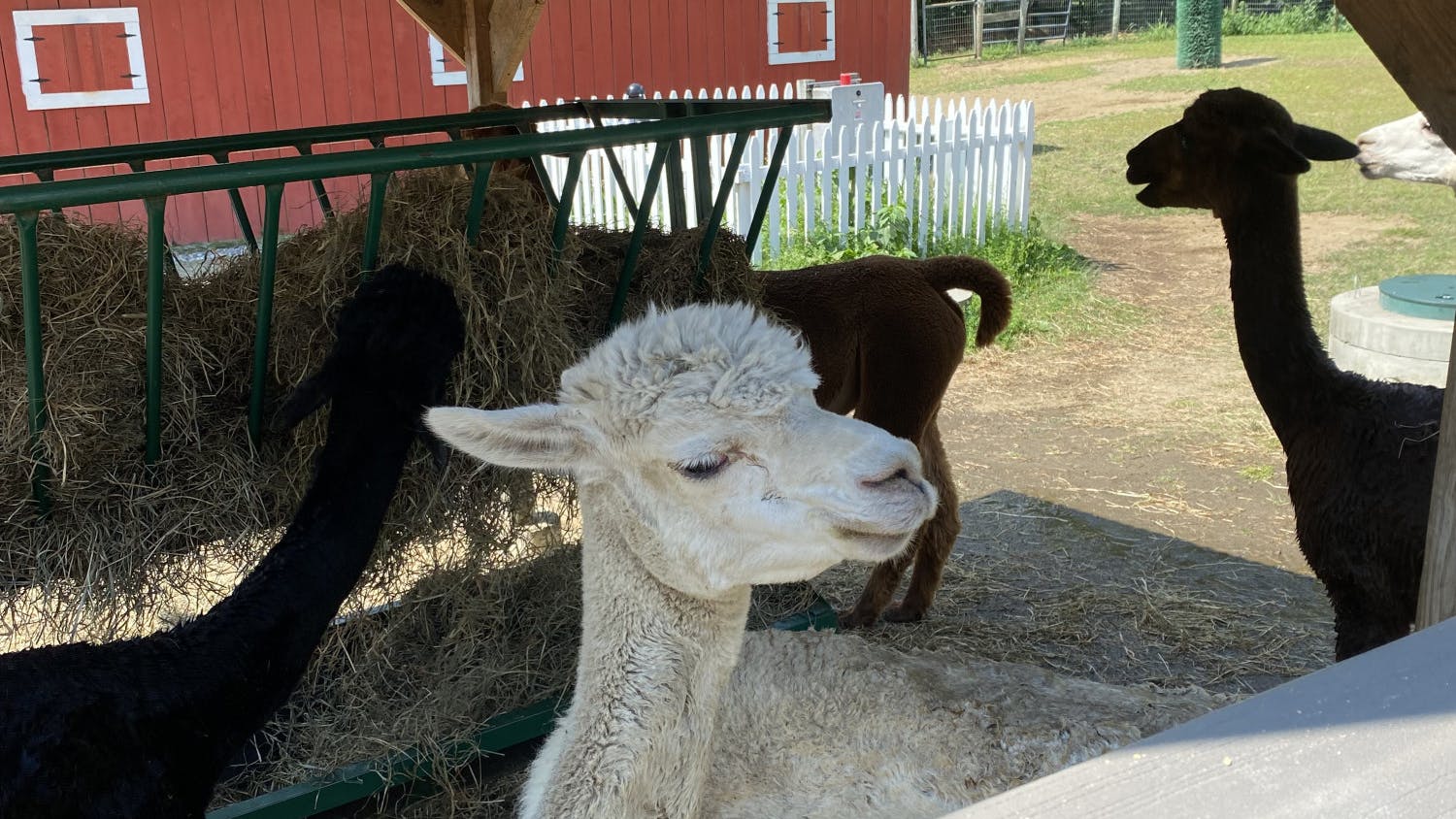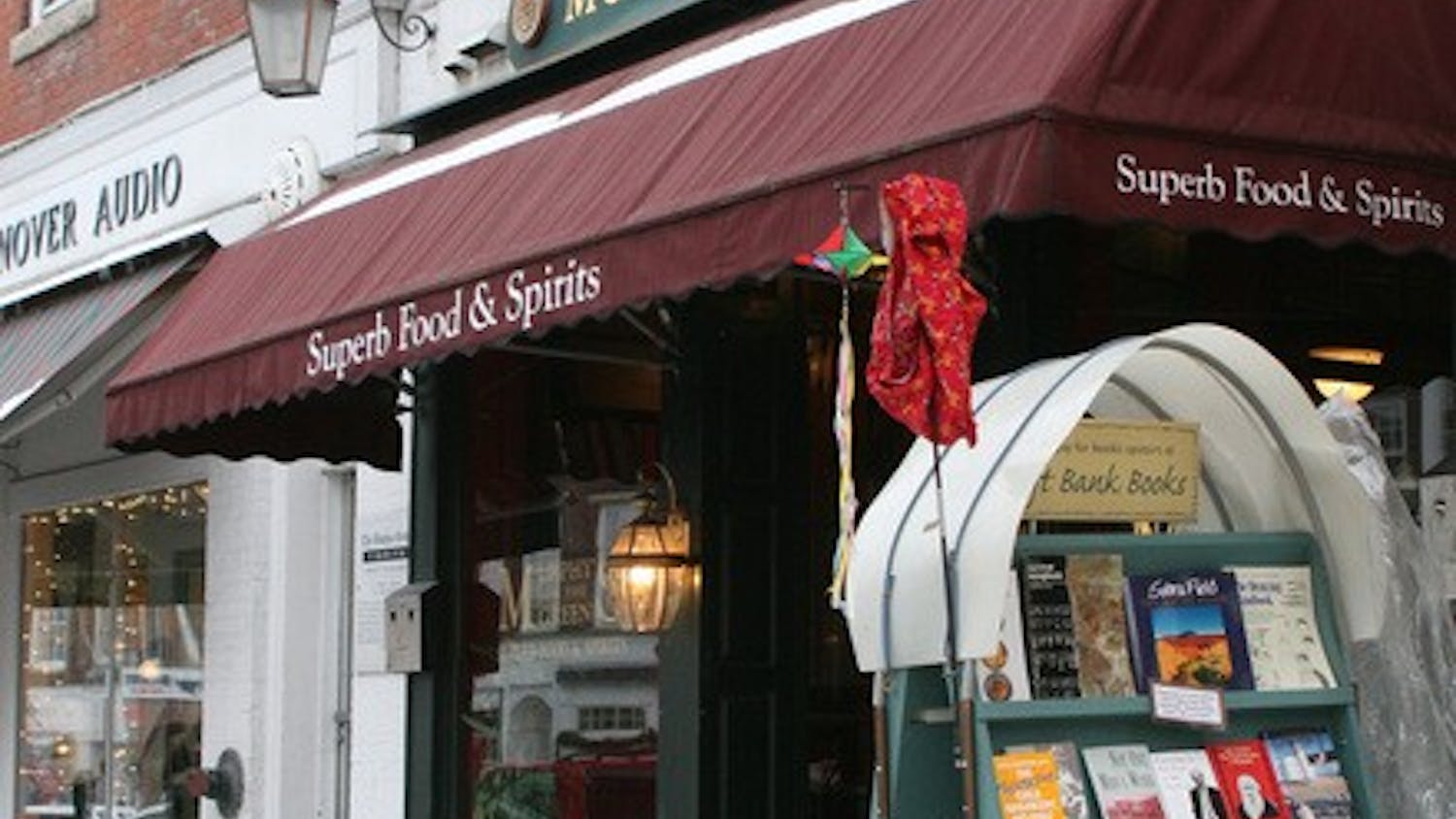Conventional wisdom holds that Hanover is really, really small and in the middle of nowhere. Granted, when your Classics 4 notes are heaped next to those forms you've been meaning to turn in for that club you're running and you're stuck in the stacks anyway, then the Appalachian Trail is no better nor worse a place than anywhere else to be. That being said, sometimes, when the workload lifts or you're on your third game of pong on a Friday night, it hits you through an act of great imagination, some very smart people managed to lure 4,100 undergrads to a clearing in the forest.
I'm not even going to wonder how they did it. What I'm interested in is how we manage to make this arrangement work. It requires something that forges a bond that can both transcend our different backgrounds and lend strength to a community largely dependent on itself. And wearing uniforms is not an option.
Our solution, largely, has been a linguistic one. A sprinkling and really, it's not much more than a generous sprinkling of unique vocabulary constructs confer group affiliation without also creating social stratification. Tell me you're NRO-ing your third class, and it tells me you're a Dartmouth student, but leaves unsaid whether you're from the West Coast or the West Village.
Boot is an ingenious word. No, seriously. Its beauty lies in its ability to very clearly convey a subject we discuss ad nauseam (as it were) without conjuring any relevant mental image at all. If you're going to want me to relive every detail of your circuit last night, that's cool, but I don't actually need described to me every sensory experience.
Our most colorful phrases reflect College traditions. For most of my first year, it was not unreasonable in group settings to challenge someone to a vegetable off (yeah, remember those?) to settle disputes. This reminded us of our DOC trips a common experience we pretty much all shared and those easy-breezy Camp Dartmouth days.
The most nuanced words reflect a self-consciousness of the overall Dartmouth condition. As individuals, we are ultimately academic. As a group, we've become doggedly focused on perfecting our social personas, and we know it. We revel in being socially fabulous. Take facetime. The guy off the street would get that it has something to do with flaunting your own, well, existence, but we know it's so much more than just seeing and being seen. It's also being busy enough that we have to schedule time for it and wanting people to stop and appreciate our beautiful faces.
Facetime is goal-oriented, like we tend to be, and we're pretty sure the act will pay off in the future. Over the long run, it's a way to amass social capital, and in the short term, it's a much easier way to find a formal date than the Foco Challenge. Its usages like for that girl who will be jogging endlessly at the gym as long as we care to make her exhibit "A" of what not to do reflect our awareness of the fine lines between being proactive and grossly overachieving and generally fake.
With language, we can also ameliorate those Ivy tendencies that just are not that endearing. This is where self-call comes in. Only at Dartmouth can you draw that much attention to yourself but immediately excuse it. It's okay as long as you acknowledge your own lack of social grace and swear you'll be more tactful the next time.
Words cycle in and out of fashion here like anywhere else, but the words that are decidedly Dartmouth fit a pretty uniform pattern. They're short. In most cases, they're freestanding one-syllable words (rage, blitz). If not, they're simple compounds built from the same box of Legos (think "blitzwar"). These code words convey shades of Dartmouth invisible to the uninitiated.



